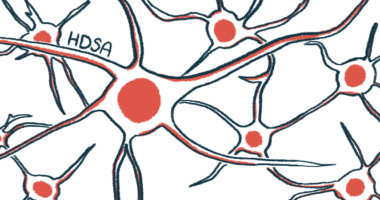Targeting Faulty HTT Gene with Antisense Oligonucleotide May Be Way of Stopping Huntington’s Progression

Blocking the expression of mutated huntingtin — the protein involved in Huntington’s disease — by directly targeting the faulty gene may be a way of stopping disease progression in patients, according to results of an early study.
The study was published in the journal Nucleic Acids Research, under the title “CTG Repeat-Targeting Oligonucleotides For Down-Regulating Huntingtin Expression.”
Huntington’s disease is caused by mutations in the HTT gene, which encodes the protein huntingtin. The mutation leads to the formation of faulty huntingtin and messenger RNA (mRNA), triggering a series of toxic molecular events to nerve cells in the brain that result in the movement problems, and psychological and cognitive difficulties, that mark Huntington’s. Reducing the expression of the mutant gene could be a way of stopping disease progression in patients.
Researchers at the Karolinska Institutet and University of Southern Denmark designed a group of short molecules, known as antisense oligonucleotides, that specifically bind to mutated HTT and inhibit mRNA expression, blocking the production of abnormal huntingtin in neurons (mRNA expression refers to how a gene is “read” to create a protein). Using cells from Huntington’s patients, they observed that the antisense oligonucleotides specifically and effectively reduced levels of mutated huntingtin.
“We’ve … created oligonucleotides that bind direct to the damaged DNA sequence and block the production of both mRNA and protein,” Edvard Smith, the study’s senior author, said in a news release. “It was thought by many to be too difficult to target the double-stranded DNA, but we have demonstrated that it actually works.”
The team also investigated different ways of delivering the antisense oligonucleotides into cells to improve the treatment’s efficiency, and to facilitate its future application in more complex test models.
Researchers now plan to test their method in a mice model of Huntington’s disease to confirm these early results.
“We are fairly confident that this will also work since our oligonucleotides were taken up spontaneously by the cells,” Smith said. “The idea is to administer them into the cerebrospinal fluid.”
The safety and efficacy of antisense oligonucleotides is currently under investigation as a possible therapy for diseases such as amyotrophic lateral sclerosis (ALS) and Alzheimer’s. The U.S. Food and Drug Administration (FDA) also recently approved an antisense oligonucleotide — Spinraza — to treat spinal muscular atrophy, a genetic disease that affects the muscles of children.






